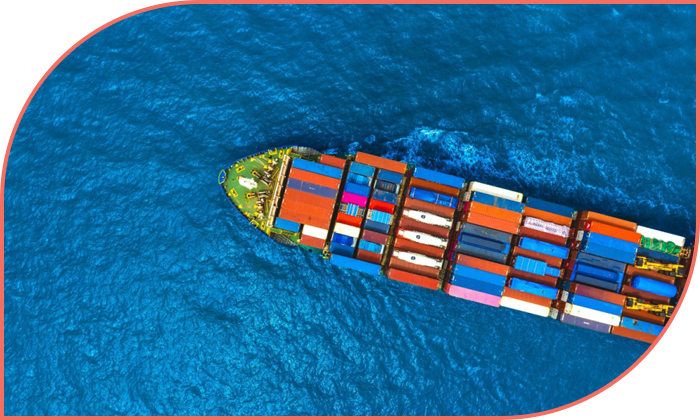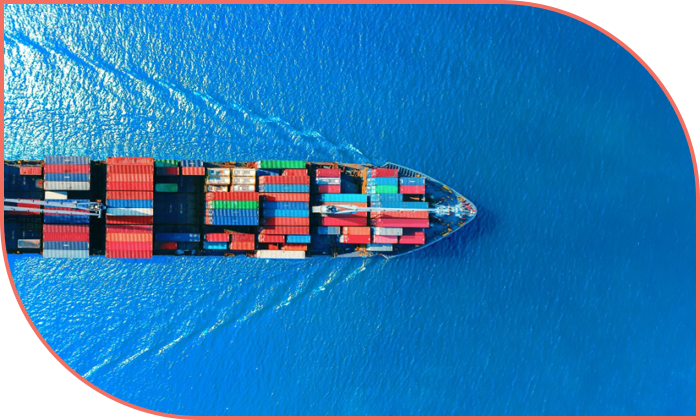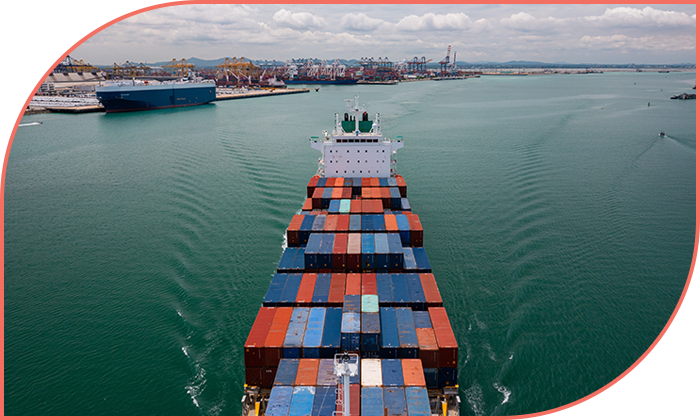Delivered At Place Unloaded (DPU)
What is Delivered at Place Unloaded?
Delivered at Place Unloaded (DPU) means that the seller is responsible for delivering the goods to a specified destination after they’ve been unloaded from the airport.
The seller must unload the goods at that location, covering costs and bearing all risks up to the point where the goods are unloaded at the agreed-upon destination.
DPU Incoterm obligations for seller
- Arranging for and paying all costs related to transportation from the place of origin to the named place of destination.
- Handling export customs clearance and any associated fees.
- Bearing all risks associated with the goods until they are unloaded at the named place.
Unloading the goods at the destination.
DPU Incoterm obligations for buyer
- Import customs clearance, including paying duties and taxes.
- Any costs and risks associated with the goods after they have been unloaded at the named place.
- Arranging for any further transportation from the named place of destination to the final destination.
Shipping Made Simple: Compare Quotes Now
Quickly compare ocean and air freight quotes from multiple carriers. Get the most competitive price for your shipment.
Benefits of DPU Shipping
Convenience for the buyer
The buyer benefits from not having to arrange or pay for transportation and unloading, as the seller takes care of these logistics with Delivered at Place Unloaded.
Reduced risk for the buyer
The risk of loss or damage to the goods remains with the seller until the goods are unloaded at the agreed destination, reducing the buyer's exposure to risks during transit.
Clear responsibilities
DPU shipping clearly delineates the responsibilities of the seller and the buyer, minimising misunderstandings. The seller handles transportation and unloading, while the buyer takes over once the goods are unloaded.


Streamlined supply chain
For buyers, particularly those who may not have robust logistics operations, DPU simplifies the supply chain. Buyers can focus on other aspects of their business while the seller manages the transportation and unloading.
Enhanced control for the seller
Sellers can have greater control over the transportation process, ensuring that their preferred logistics providers and methods are used.
Improved delivery times
Delivery times can be improved as the seller manages the entire transportation process up to the unloading, so there is less likelihood of delays caused by coordination issues.
Simplifies complex shipments
For complex shipments involving multiple modes of transport or special handling requirements, Delivered at Place Unloaded allows the seller to manage these complexities.
Better for international shipments
In international trade, navigating customs and logistics in different countries can be challenging. DPU allows the seller, who might be more familiar with these processes, to handle them.
Competitive advantage
Offering DPU Incoterms can make a seller’s offering more attractive to potential buyers, especially those looking for hassle-free procurement and delivery processes.

The Best Rate For Your Freight
Access real-time quotes from leading freight providers. Choose the best ocean and air shipping option for your business.
Drawbacks of DPU Shipping

Higher costs for the seller
The seller bears all costs associated with transportation, unloading, and any potential delays during unloading. Compared with other Incoterms, this can be more expensive.
Increased responsibility for the seller
The seller is responsible for ensuring that the goods are safely unloaded at the destination, including coordinating with local authorities, handling unloading equipment, and managing potential risks during the unloading process.
Risk of unloading delays
Delays in unloading can occur due to unforeseen circumstances such as port congestion, strikes, or customs inspections. Since the seller is responsible until the goods are unloaded, any delay can lead to increased costs and complications with a DPU Incoterm.
Complex logistics coordination
DPU requires the seller to have a comprehensive logistics plan, including arrangements for transportation, unloading, and coordination with various stakeholders. Managing these arrangements can be challenging, especially for sellers without robust logistics capabilities.
Insurance considerations
The seller must maintain insurance coverage until the goods are unloaded, which can be more costly. Managing insurance claims for damage during unloading can be complex and time-consuming
.
Limited control for the buyer
Buyers have less control over the transportation and unloading process, with Delivered at Place Unloaded. They must rely on the seller to manage these aspects effectively, which can be a concern if the seller's logistics capabilities are not strong.

DPU Frequently Asked Questions
What are the seller's responsibilities under DPU?
The seller is responsible for all costs and risks until the goods are unloaded at the named place of destination, including export duties, transportation, and unloading the goods.
How does DPU differ from DAP (Delivered at Place)?
Under DAP, the seller delivers the goods to the named place, but the buyer is responsible for unloading. Under DPU, the seller is responsible for unloading the goods at the named place.
What types of goods are suitable for DPU shipping?
DPU is suitable for goods that can be easily unloaded at the destination, such as containerised cargo, machinery, and other bulky items.
Can DPU be used for any mode of transport?
Yes, DPU can be used for any mode of transport, including road, rail, sea, and air.
What should be considered when choosing a named place for DPU?
The named place should have the necessary facilities for unloading and should be a location that both the seller and buyer agree upon. Accessibility and safety should also be considered.
Are there any insurance requirements for DPU?
Insurance is not mandatory under a DPU Incoterm, but it’s advised that the seller should insure the goods until they are unloaded at the named place and for the buyer to insure the goods from that point onward.
How is the unloading cost handled in DPU?
The seller bears the unloading cost as part of the delivery obligation under DPU.
Get The Best Freight Rates Today
Easily compare rates from top ocean and air freight carriers. Save time and money on your next shipment.rn